SUMMARY
This is AI generated summarization, which may have errors. For context, always refer to the full article.
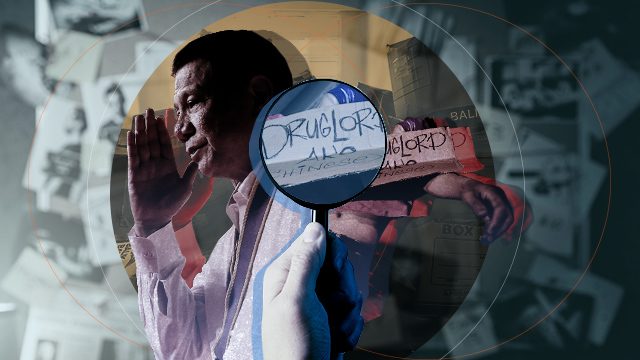
It’s the second tweak in just a week to a supposedly “significant milestone” in the fight for accountability in the bloody drug war, as the Philippine National Police (PNP) narrows its data-sharing agreement with the Department of Justice (DOJ) following President Rodrigo Duterte’s concerns on national security.
PNP chief General Guillermo Eleazar said in a press conference on Tuesday, June 1, that they would only share for now records of 53 cases – a huge backtrack from an earlier promise to open all records of the 7,884 drug suspects who died in police anti-drug operations.
“Actually, ‘yung nabanggit ng ating Pangulo, hindi lahat ng kaso puwedeng ilabas natin. Through our arrangement with the DOJ, ‘yung mga resolved na kaso na lang ang aming ifo-forward sa kanila,” Eleazar said on Monday.
(As the President mentioned, we can’t release all case files. Through our arrangement with the DOJ, we will only forward the resolved cases.)
The DOJ announced on May 24 that the PNP had agreed to share 61 cases where the police had found administrative liabilities. On May 26, wanting to address perceptions that they were keeping those files secret, Eleazar said they would open all records.
But following Duterte’s late-night speech on Monday, May 31, where he cited national security concerns over sharing all data of the drug war, Eleazar has again changed tune, even reducing the 61 cases to 53.
Eleazar said that of the 61 cases they have resolved and where they had found administrative liability, eight are on appeal.
“‘Yun muna ay hindi muna natin ibibigay because of those regulations (We won’t give those just yet because of those regulations),” said Eleazar.
‘We’ll play it by ear’
Justice Secretary Menardo Guevarra said he believes that Duterte didn’t mean not to disclose files but just to be careful with them, with the country’s national security in mind.
“We’ll play it by ear. There’s this concern on the part of the President, so we’ll just be more careful,” Guevarra said in the same press conference.
In 2019, the Supreme Court said “it is simply ridiculous to claim that these information and documents on police operations against drug pushers and users involve national security matters.”
“These information and documents do not involve rebellion, invasion, terrorism, espionage, infringement of our sovereignty or sovereign rights by foreign powers, or any military, diplomatic or state secret involving national security,” the Supreme Court said in the 2019 resolution that ruled in favor of releasing the documents on drug war killings to the two petitioner groups.
Rappler has obtained a copy of those documents and found that they were rubbish files, with most of them not related to the drug war at all and none were deaths in police operations. The submission of rubbish files stalled the case in the Supreme Court, now pending there for four years.
“As far as I’m concerned, these are more of a criminal nature than a national security concern. So I suppose that the President really meant that in the general cooperation between PNP and DOJ, concerns about national security should be properly addressed,” said Guevarra.
Presidential Spokesperson Harry Roque on Tuesday clarified that Duterte’s order does not pertain to all the documents being shared by the PNP with DOJ on police suspected of wrongdoing.
However, he said documents related to “live” investigations are deemed by the President to be too sensitive to be made public.
“‘Yang information on ongoing police investigations, traditional exception ‘yan to the right to information, pero hindi po sakop diyan ‘yung sharing of information na ginagawa ngayon ng PNP at DOJ pagdating doon sa posibilidad na may ilang kapulisan na mayroong pananagutan pagdating sa patayan,” said Roque in a press briefing.
(Information on ongoing police investigations are a traditional exception to the right to information, but that does not cover the sharing of information between the PNP and DOJ when it comes to the possibility that there are some cops who must be held accountable for killings.)
The Palace insisted that while Duterte will protect cops who properly enforce the law, police personnel who abuse their power are “on their own.”
“Of course, those sensitive information involving live investigations cannot be released, but everything to do with accountability and improving professionalism among our police force is not covered,” Roque said in Filipino.
The willingness of the Duterte government to investigate abuses in the drug war is a key factor in the International Criminal Court’s (ICC) decision on whether or not to open a formal phase of investigation where summons and arrest warrants may be issued.
Data privacy law
But what if the DOJ wants files outside of the 53 cases, or even the 61? Will the PNP still give it?
“Why not? As long as it will not violate data privacy law,” said Eleazar.
Eleazar and Guevarra said that initially, the review of the 53 or 61 cases would be about whether criminal complaints should also be filed against those policemen.
Guevarra said they would talk to witnesses to complement the police records.
“Bukas ang aming records sa DOJ, having the imprimatur of the President and the one tasked to review,” said Eleazar.
(Our records are open to the DOJ, having the imprimatur of the President and the one tasked to review.)
This is problematic to human rights groups, because they also want the DOJ review to investigate Duterte’s liability in possibly having incited killings, as well as other senior officials who may have made some top calls.
The DOJ has evaded this question, only saying that their review will look at all angles.
Guevarra said they are still studying whether they can share the police files with the independent Commission on Human Rights.
The ICC is set to announce this June if it would move to investigate the allegations of crimes against humanity in Duterte’s drug war. – with a report from Pia Ranada/Rappler.com
Add a comment
How does this make you feel?
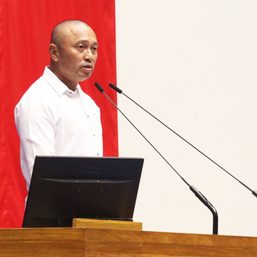
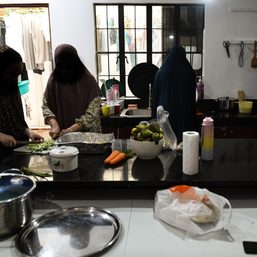
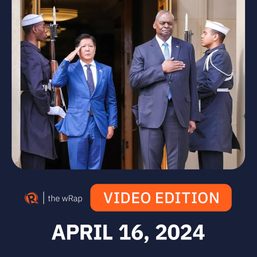
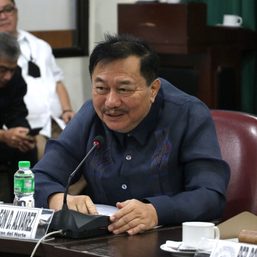
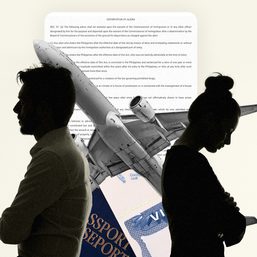

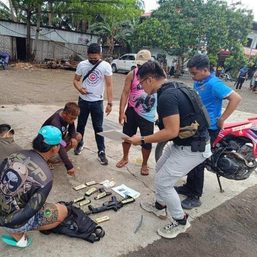

![[Rappler Investigates] The guns of Apollo Quiboloy](https://www.rappler.com/tachyon/2024/04/quibs-guns-carousel.jpg?resize=257%2C257&crop=412px%2C0px%2C1280px%2C1280px)

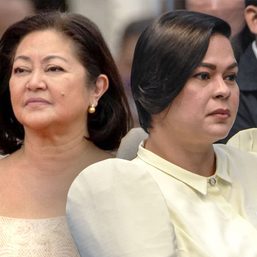
![[OPINION] ‘Some people need killing’](https://www.rappler.com/tachyon/2024/04/tl-some-people-need-killing-04172024.jpg?resize=257%2C257&crop_strategy=attention)
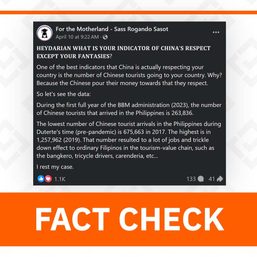
There are no comments yet. Add your comment to start the conversation.